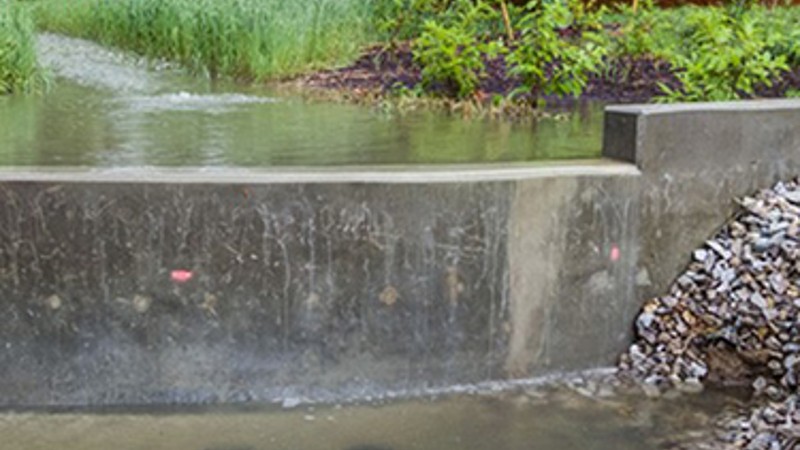Pogues Run CSO 143 Basin Sewer Separation
City of Indianapolis, Indiana

The Problem
The Pogues Run Combined Sewer Overflow (CSO) 143 Basin Sewer Separation Project separates the combined portions of the CSO 143 Basin in order to eliminate the overflow while simultaneously correcting local flooding issues utilizing a green best management practice (BMP) approach. A scoping report was prepared in 2008 by the Indianapolis Clean Stream Team. This report recommended separating and alleviating local flooding by installing a conventional storm sewer system with mechanical BMP devices.
With Indianapolis’ desire to be the most sustainable City in the Midwest, Commonwealth was retained in late 2008 to investigate the use of “green” technologies in lieu of a traditional system. The CSO 143 Basin “Green” Feasibility Study consisted of modeling the existing combined system, including the storm portion, developing green infrastructure selection criteria, providing recommended alternatives and costs, investigating ways to engage the community, and addressing short and long-term maintenance.
The Solution
After meeting with the City and affected stakeholders, design began on the recommended alternatives. This project consisted of traditional sewers, bio-retention basins, bio-swales, and isolated rain gardens, which will not only address the separation of the CSO area and local flooding but it will provide an asset for the local community to enjoy. In addition to the design, we provided land acquisition services, bidding, and construction-related services.
During early discussions with City staff on this project, short and long-term maintenance was a major concern. Commonwealth addressed this concern by adding a second division to this project which will require the contractor who installs the basin to maintain it over a three (3) year period. This will allow the City to evaluate the effort and costs associated with maintaining sustainable infrastructure. In addition, Commonwealth, along with the City, developed a biological and chemical sampling and testing plan. This plan includes gathering data over a three (3) year period to set a baseline for the performance of future “green” projects.
